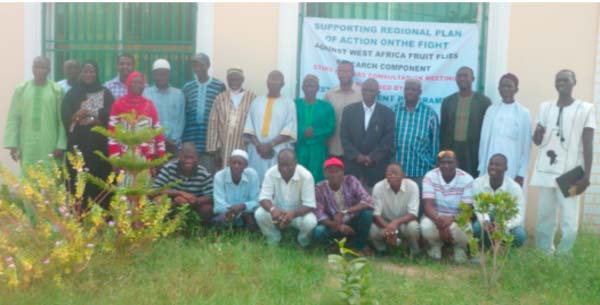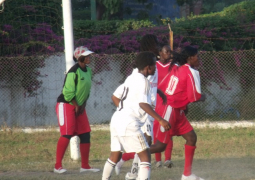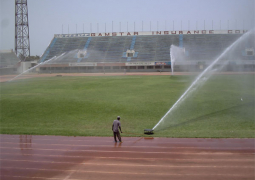
Pest Management Programme (PMP) of the
National Agricultural Research Institute (NARI) on 14 July 2016 organised a day
stakeholders’ consultative meeting on mango fruit flies.
The meeting, held at NARI Conference Hall
in Brikama, was funded by the EU and French Development Agency through Ecowas
and CORAF. The programme is part of activities supporting regional plan of
action on the fight against West Africa fruit flies research component.
Ansumana Jarju, Director General of the
National Agricultural Research Institute, in his opening statement, highlighted
the importance of commitment, adding that it is important that people take the
workshop seriously, take stock, document and deliver through consultation.
Mr Jarju described mangoes as the country’s
resources which must be safeguarded.
“These are our national resources and food
basket,” he added, saying: “We rely on mangoes at the local level and any
significant damage we cannot control is a real setback for the economy of the
country and the livelihood particularly.”
“Fruit flies elimination is a multinational
task we must seek to accomplish,” he stated, while urging participants to give
the consultative meeting the value it deserves.
Deputy Director General of NARI, Dr Demba
Jallow, in his remarks, said fruit flies cause serious damage to horticultural
produce in The Gambia, especially on mangoes and many other fruits.
“Worldwide fruit flies are considered as
one of the most important pest in horticulture causing either direct or
indirect damage,” he pointed out, saying it is estimated that about 30 to 50%
of damage on fruits especially mangoes in Africa is caused by fruit flies.
Dr Jallow remarked that, out of the two
million tonnes of mangoes produced in Africa, 30 to 50 percent is damaged by
fruit flies, which shows the seriousness of the meeting.
He further described the meeting as very
relevant as mangoes are becoming an important source of food in the country.
“The demand for mangoes is high but there
are restrictions especially on quarantine for the export package,” he noted,
saying this is very important because “the European Union has regulations our
mangoes have to meet”.
He said “if our mangoes are affected then
it reduces the market value of the produce”.
Landing Sonko in chairing the opening
ceremony, said the horticulture sub-sector is very important in efforts to
sustain food security, and an important source of food and foreign exchange.
“Fruit flies have been for a long time
affecting the horticulture food sector,” he observed, saying the meeting was
meant to discuss ways to combat the negative effects of fruit flies on the
country’s produce and its implication of the export market.
Gibril Williams, GHE Farm Manager, in his
vote of thanks, described the various presentations as fruitful and important
for farmers and the private sector present at the meeting.
He thanked NARI for hosting the meeting as
well as their good job.
Meanwhile, there were presentations by
Ismaila Mbenga on the on-going fruit flies research activities; Ousainatou
Drammeh-Sanyang on fruit flies research work using natural substance as
alternative to synthetic pesticides for the control of major fruit flies
species in the Gambia; Modou Lamin Touray on fruit flies management options; Assan
Mboge on financial procedures; Sajo Konateh on surveillance and control
component; and Lamin Sanneh M & E of the research component.
Read Other Articles In Article (Archive)




